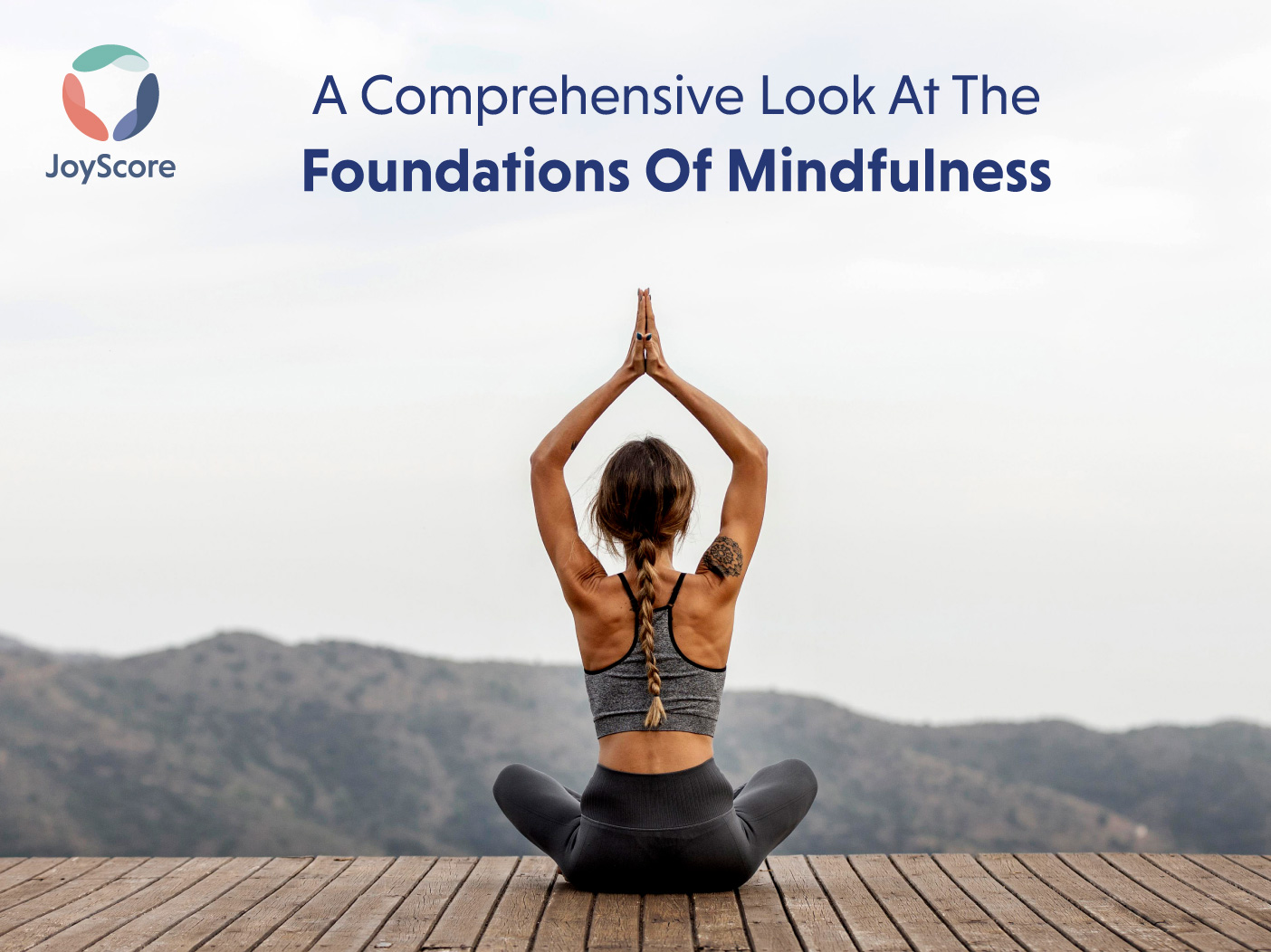A Comprehensive Look at the Foundations of Mindfulness
The foundations of mindfulness have found their way into many aspects of modern life. Its influence has spread from the therapy room to schools, and even to the mainstream media. By impacting a wide range, the use of mindfulness has made a giant footprint in our society.
In the past 10 years, mindfulness and meditation have gone from something reserved for monks and spiritual teachers to part of a growing movement that has found its way into many businesses, health systems, community centers, and even prisons.
Meditation itself isn’t simply one thing; it’s hundreds of things. With so much information about mindfulness and meditation, it can be helpful to review the basic intentions of their founding philosophies.
What is Mindfulness?
Mindfulness is the process of bringing one’s attention to experiences occurring in the present moment. It is a skill that can be learned, and practiced by anyone, regardless of religious or spiritual beliefs. Mindfulness training differs from concentration practices like focusing on an object,or the technique of using a mantra in two ways. First, mindfulness is about being aware of whatever arises in one’s experience—physiological sensations, emotions, thoughts—without judging it as good or bad. Second, mindfulness practice includes bringing awareness to one’s surroundings and how one interacts with them.
Mindfulness can be practiced throughout the day, no matter where you are or what you are doing. You can practice mindfulness in every aspect of your life. One of the many benefits of mindfulness is that it can help you be more productive and focused.
The power of mindfulness
The power of mindfulness can be seen in its ability to bring us back into the present moment and help us deal with our challenges more effectively. Mindfulness is a powerful tool that has been used by Eastern cultures for hundreds of years but has only recently become popular in Western society.
Mindfulness is not a religion, nor is it a belief system; it’s simply an approach to living your life. When you practice mindfulness meditation, you learn how to focus on your thoughts and feelings without judging them as good or bad.
The power of mindfulness lies in its ability to help us accept things as they are, without judging them right or wrong. This helps us develop greater awareness of what’s happening in the present moment — good or bad — rather than dwelling on the past or worrying about the future.
Mindfulness has been shown to improve emotional well-being because it increases our capacity for joy, equanimity and compassion. When we’re mindful we’re more likely to connect with ourselves in a deep and meaningful. This leads to greater self-acceptance and self-compassion — which can help us be less reactive during challenging situations.
Benefits of mindfulness
Mindfulness has many benefits for our mental health too: it reduces stress and anxiety, helps us cope with difficult emotions, improves our relationships, and keeps us focused and calm. Research also shows that it can improve sleep quality and boost immune responses to illness.
- Reduces stress: Mindfulness helps you become more aware of how you feel in the present moment, which can help you better manage stressful situations and emotions.
- Helps you relax: By focusing on deep breathing, mindfulness helps reduce muscle tension and release endorphins that make you feel relaxed and happy.

- Improves mental clarity: Focusing on one thing at a time can help improve concentration so that you can be more productive at work or school as well as make better decisions about how to handle conflicts with others (such as family members).
- Helps with depression: Research has shown that practicing mindfulness meditation for as little as 15 minutes a day over eight weeks can reduce symptoms of depression. You don’t need to do this formally or sit cross-legged on a cushion; simply bringing your attention back to the present moment when it strays will help ease depression
- Improve your mood and outlook on life: People who practice mindfulness have been shown to have increased positive emotions and decreased negative emotions, as well as better relationships with others and the world around them — all of which contribute to a more positive attitude toward life overall.
Four foundations of mindfulness:
In Buddhism, mindfulness is one of the core foundations. It’s the first step on the path to liberation from suffering. The Four Foundations of Mindfulness is a way of training the mind to be more mindful. By practicing these four techniques, you’ll learn how to be aware of what’s going on in your body, your feelings and emotions, the thoughts in your mind, and the world around you.
The Four Foundations of Mindfulness are the four essential elements of the Buddha’s path to enlightenment and liberation. They are.
Attention to the body — mindfulness of breathing, as well as being aware of one’s posture and physical activities
Attention to feelings — being aware of pleasant, unpleasant, or neutral feelings
Attention to mind — being aware of thoughts, including their nature, e.g., whether they are wholesome or unwholesome
Attention to mental qualities — being aware of one’s mental qualities such as concentration, wisdom and mindfulness
Practice mindfulness as a way to relieve stress and cultivate patience. Download Joyscore app to get started!
Remember mindfulness is the key to your success. Mindfulness practices help us develop emotional resilience, a key quality to succeed in almost any area of life. It is the cornerstone of most Buddhist traditions, and a practical approach that anyone can tap into for everyday inspiration. Mindfulness has the ability to enhance your life dramatically, but when starting any new endeavor, don’t forget it’s always best to find an expert in the field. We recommend you seek out a reputable, qualified mediation teacher who can help guide you on your path to enlightenment.
Mindfulness is a positive thing and can be used for many purposes, not just those listed here. Before you begin your meditation practice, it can be helpful to have some idea of what you hope to achieve from the process. Regardless of your goal, we encourage you to take some time to really reflect on this before starting. It will better prepare you for what’s ahead and help you to make the most of your practices.
By understanding the original motivations behind the foundation and mindfulness and meditation, you can begin to deepen your practice. Focusing on what’s most important, however, can be difficult in the face of so many options. It’s also easy to get caught up in how others are using mindfulness when considering how to apply it to our own life. In the end, no one way of practicing is right for everyone. As we’ve observed before, it’s best to let go of all that and focus on developing a practice that is right for you.
Download on the Appstore
Get it on Google Play



